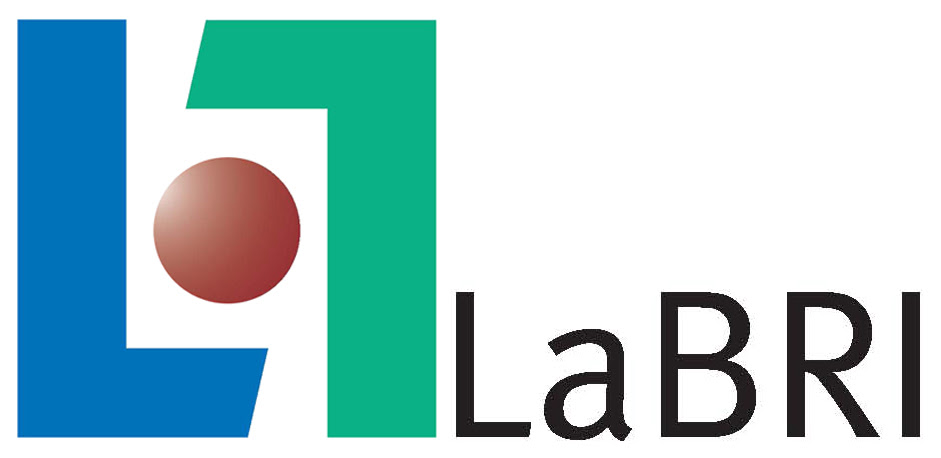Evénements scientifiques 2019
The 34th ACM Symposium on Applied Computing
Track on Communication, Computing, and Networking in Internet of Vehicles (CCNIV)
April 8-12, 2019, Limassol, CyprusWith continuously increasing urban population and rapidly expanding cities, traffic congestion, road accidents and environmental pollution, deeply affecting the everyday life and move of people, have become urgent problems to be solved. The conventional Vehicle Ad-hoc Networks, with no concrete implementation, allow vehicles to communicate with each other in order to enable new services, such as traffic management, accident avoidance and resource sharing. However, the recent advances in communications, controls and embedded systems, brought by the Internet of Things era, propel the evolution towards the Internet of Vehicles, a more general concept gaining more interest from both academia and automotive industry during the past few years.
Notwithstanding, the IoV is considered as an important symbol of the Smart City concept and it has a wide application prospect in building future Intelligent Transportation System, numerous challenges still need to be tackled to allow a better exploitation of the Internet of Vehicles potential. The CCNIV track aims to offer a space for researchers/academics to discuss major research issues, to share new findings and to exchange ideas covering a variety of topics associated to Internet of Vehicles and Intelligent Transportation Systems.
General Co Chairs
Imen Jemili, Faculty of Sciences of Bizerta, University of Carthage, Tunisia
Mohamed Mosbah, LaBRI, Bordeaux INP, France
website : http://ccniv.labri.fr/2019/
Special Issue "Internet of Vehicles"
A special issue of Sensors (ISSN 1424-8220). This special issue belongs to the section "Internet of Things" Deadline for manuscript submissions: 30 June 2019The first deployments at large scale of connected vehicles are happening throughout the world. Connected through ad-hoc networks, these vehicles are giving birth to an actual “Internet of Vehicles”, which builds the foundation of a next generation of traffic management systems. While day-one applications were relatively straightforward to implement, higher-level applications, like the monitoring of environmental and weather conditions and of the infrastructure and its equipment, depend both on the metrological characteristics of the in-vehicle sensors and on the computational architecture, as well as on the algorithms. However, the ability to implement such applications is a key issue, e.g. to enable the safe deployment of highly-automated vehicles, or to implement automated enforcement strategies in restricted zones.
This Special Issue welcomes contributions dealing with all the technological facets of the Internet of Vehicles, including architecture, communication technologies, advanced applications, sensing and algorithms, but also on deployment issues, such as the development of energy-efficient RSUs.
Special Issue Editors
Dr. Nicolas Hautière, Département Composants et Systèmes, Institut Français des Sciences et Technologies des Transports, de l'Aménagement et des Réseaux, Marne la Vallée, France
Dr. Imen Jemili, Faculty of Sciences of Bizerta, University of Carthage, Tunisia
Pr. Mohamed Mosbah, LaBRI, Bordeaux INP, France
website : https://www.mdpi.com/journal/sensors/special_issues/IoV
Special Issue "Distributed Algorithms for Wireless Sensor Networks"
A special issue of Sensors (ISSN 1424-8220). This special issue belongs to the section "Sensor Networks" Deadline for manuscript submissions: 1 October 2020Today, the growing interest in Wireless Sensor Networks has led to their deployment at large scale in several fields ranging from environmental monitoring to smart transportation, industrial systems, health and biomedical systems, intelligent environments, etc. Sensors being a key component of the Internet of Things, many IoT solutions entail their deployment in order to gather information from the surrounding environment, which will be forwarded for remote data processing (at sink level, fog/edge level or by a cloud-processing service). Sensor nodes have to cooperate in order to ensure a reliable forwarding for the different types of gathered data while respecting the QoS requirements. For some applications, other concerns have to be considered, such as security issues and energy limitation, as sensors have to operate for many years with limited batteries that cannot easily be replaced. To enhance network performances, additional contextual information can also be handled to adjust node and network behaviors. However, with the significant growth in the use of IoT and distributed sensor systems, many challenges arise and need to be addressed to support such large deployment, mainly in the context of smart cities and environments. In this context, the recourse to distributed algorithms in which computation is distributed among all sensor nodes allows overcoming inherent WSN limitations related to the short range communication over a wireless medium, resource limitations in terms of energy, computational resources, unreliability of links, etc. Further, distributed algorithms are required to comprehend the aspects of the large implementations that lead to certain characteristics, i.e., scalability, efficiency, and optimization.
This Special Issue welcomes contributions dealing with distributed algorithms for Wireless Sensor Networks tackling all aspects, from sensor deployment to data management cloud.
Special Issue Editors
Dr. Imen Jemili, Faculty of Sciences of Bizerta, University of Carthage, Tunisia
Pr. Mohamed Mosbah, LaBRI, Bordeaux INP, France
Dr. Mohamed Tounsi, Umm Al-Qura University, Makkah, Saudi Arabia
website : https://www.mdpi.com/journal/sensors/special_issues/Distributed_Algorithms_WSN
Distributed Computing for Emerging Smart Networks Workshop
In conjunction with 16th International Colloquium on Theoretical Aspects of Computing
October 30, 2019, Hammamet, TunisiaThe workshop aims to be a majorforum for researchers and practitioners, interested in the design, development and evaluation of distributed systems, platforms and architectures for Cyber Physical Systems in the context of smart cities.
Authors are invited to submit original and unpublished contributions inall aspects of Distributed Computing applied to CPS and to real cases in the context of emerging networks.
General Co Chairs
Imen Jemili, Faculty of Sciences of Bizerta, University of Carthage, Tunisia
Mohamed Mosbah, LaBRI, Bordeaux INP, France
website : https://visidia.labri.fr/DiCESN/









